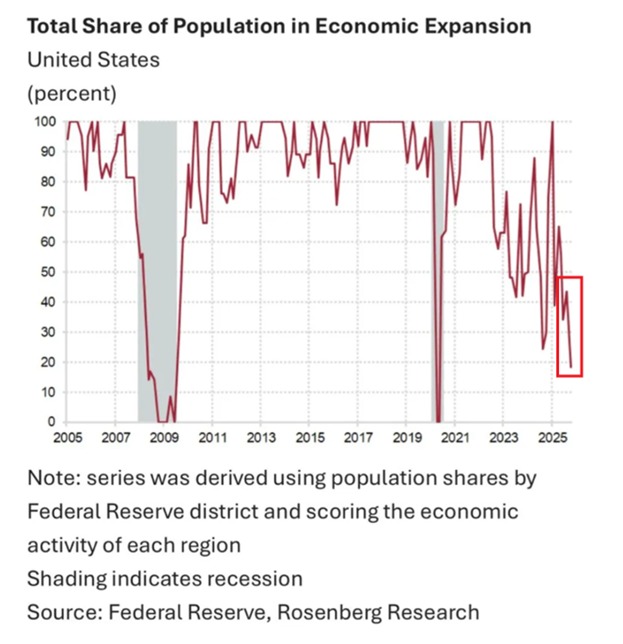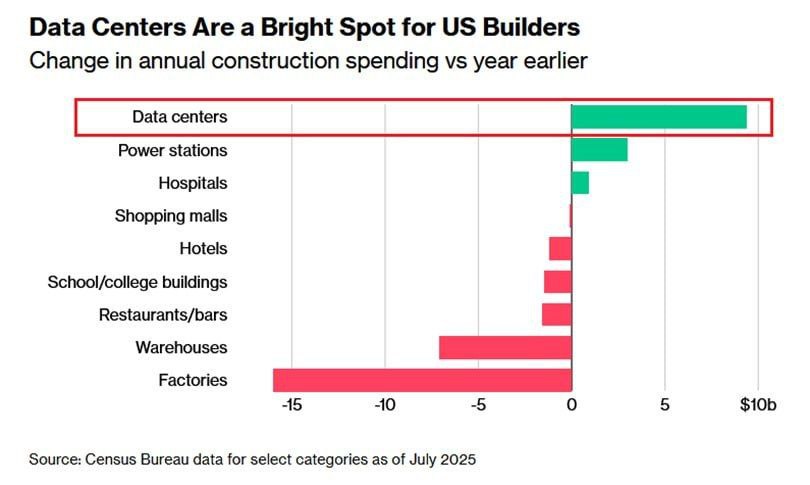Normally I ignore the style of government rhetoric and concentrate on the substance. But the Trump administration is so pathetically juvenile it beggars belief:
Womp womp, cry all you want. These criminal illegal aliens aren’t getting released.
Like clockwork, violent rioters have arrived at the Broadview ICE facility to demand the release of some of the worst human beings on planet earth.
Get a job you imbecilic morons. pic.twitter.com/k4HdE5IqNu
— Homeland Security (@DHSgov) November 14, 2025
I mean, what? This sounds like something from a schoolyard. Womp, womp? Imbecilic morons?
Of course, the fish rots from the head:
“If there’s nothing incriminating in the files, sir, why not—” Lucey began to say as the president took questions aboard Air Force One.
Before she could finish, however, Trump pointed his finger at her and barked, “Quiet! Quiet, piggy.”
…
“This reporter behaved in an inappropriate and unprofessional way toward her colleagues on the plane. If you’re going to give it, you have to be able to take,” a White House official told the Daily Beast.
There was, of course, nothing inappropriate or unprofessional about Lucey’s question.
America is ruled by stupid, foolish children. Almost everything Trump has done has backfired, harming America’s economy and position in the world. And he’s scared, as he should be, because he was Epstein’s best friend for years, and there’s no way he didn’t know what was going on. Nor is the man who leered at Teen USA contestants and grabbed women by the pussy (his words) likely to have not partaken in Epstein’s wares.
Trump was always, obviously, a sexual predator, a rapist and scum. Unlike other scum he’s barely even tried to conceal it. People voted for him because he didn’t sound like a normal politician (which is good) but were fools, because what he sounded like was a profoundly stupid, greedy and selfish man without an iota of concern for other people who enjoyed belittling and hurting them.
It is both profoundly sad and amusing to watch him hurt those who voted for him, like farmers, the most. And costs keep soaring:
Stop voting for obvious frauds, politicians suffering from dementia, and those who get off on hurting other people. “Different” isn’t enough, it has to be different in the sense of “actually wants to help people.” I have sympathy, but complete disdain for anyone who thought Trump would be good for ordinary Americans “like them.” He has governed exactly like one would expect: vastly corrupt, cruel and almost entirely to the benefit of other billionaires.
Democracy works when, at the least, ordinary people vote their own interests. Americans, and most Westerners, seem entirely incapable of doing so. (And yes, there were other options. Stop whining about how third parties can’t win, and stop voting for the duopoly. For the slow of wit, Biden was also human garbage.)
Pathetic
This site is only viable due to reader donations. If you value it and can, please subscribe or donate.

 For a long time after the Industrial Revolution, many thinkers believed that automation would lead to us living lives of leisure. Twenty hour work weeks, or even less, and many people wouldn’t need to work at all, but would still live good lives.
For a long time after the Industrial Revolution, many thinkers believed that automation would lead to us living lives of leisure. Twenty hour work weeks, or even less, and many people wouldn’t need to work at all, but would still live good lives. Let’s lay out the big picture for LLM-style AI.
Let’s lay out the big picture for LLM-style AI.

While reading deeper, I found something much more important: a lot of these new humanoid startups aren’t building from scratch. Instead, they’re standing on the Unitree G1 frame and layering their own proprietary AI on top. That means Unitree has quietly become the default hardware platform for China’s humanoid boom — like the Android of robot bodies.
A few examples:
1. A-Bots Robotics (Shenzhen, 2024)
• Focus: precision assembly, modular SDK
• AI layer: Baidu Ernie-ViLM for object manipulation
• Notes: 150+ units in Foxconn trials; ~$22k package; tuned for fragile electronics
2. HPDrones Tech (Guangzhou, 2023)
• Focus: warehouse logistics + drone hand-off automation
• AI layer: proprietary SLAM + multi-floor routing
• Notes: partnered with Unitree; 500-unit rollout for e-commerce warehouses in Q1 2026
3. LeRobot Labs (Beijing, 2024)
• Focus: open-source robotics + reinforcement learning
• AI layer: embodied datasets, tool-use improvisation
• Notes: hacked 20+ G1s for universities; GitHub repo exploded; expanding to eldercare
4. Weston Intelligence (Hangzhou, 2023)
• Focus: healthcare — vitals scanning, bedside conversations
• AI layer: Tencent Hunyuan conversational model
• Notes: deployed in Shanghai hospitals; sub-$20k price; measurable patient-compliance benefits
5. DexAI Dynamics (Shenzhen, 2024)
• Focus: dexterity — folding fabric, micro-adjustments, teleop self-supervision
• Notes: $80M raised; 100 units deployed in garment factories; arguably the best hands in China now
And then there’s MindOn — the one that caught my eye earlier — using the G1 frame to build a full butler/housekeeping robot (“MindOne”). One of their engineers even said they eventually want their own frame, but that’s the point: everyone is starting on Unitree first.
Unitree has locked down the humanoid robot ecosystem
All these startups — even if they eventually design their own skeletons — are still tying their early models to:
• Unitree’s frames
• Unitree’s actuator supply chain
• Unitree’s low-cost motor ecosystem
• Unitree’s software layer and APIs
Once you build your first few generations on someone else’s chassis + firmware, you’re effectively locked into their ecosystem. Switching costs explode. You’d have to rewrite half your AI stack.
So Unitree has already achieved what Western robotics companies wish they could do:
Become the default hardware substrate for an entire national robotics industry.
This is exactly how China overtook the West in EVs — standardized hardware, cheap mass manufacturing, and dozens of startups building on top of the same base.
Unitree is still a private company.
Given everything above, the most obvious question becomes: When does Unitree IPO?
On 15–16 November 2025 (literally this weekend), Unitree completed its pre-IPO regulatory tutoring with CITIC Securities — an unusually fast four-month process that normally takes 6–12 months.
The company publicly stated in September that it expects to submit the formal prospectus and listing application to the Shanghai STAR Market between October and December 2025.
Market sources still quote a targeted valuation of up to US$7 billion (≈50 billion RMB).
Once the prospectus is accepted (usually 2–4 rounds of CSRC questions), the actual listing can happen remarkably quickly in a hot sector — sometimes inside 3–6 months. A Q1/Q2 2026 listing is the base case, but a very late-2025 listing is still possible if the regulator fast-tracks it the way they have the tutoring.
What About America?
Meanwhile… America’s Great White Hope Elon Musk is already behind.
Elon Musk promised that the U.S. would lead the humanoid robot race with Tesla Optimus — but the timelines have slipped, and the window has basically closed. By the time Musk’s robot is actually ready for real-world deployment — 2 years from now? 3? — China’s robotics companies will already be deep into mass production, with tens of thousands of units deployed across factories, warehouses, homes, hospitals, and service industries.
And let’s be real — we all already know this:
Tesla will NOT be cost-competitive. Not even close.
China has already hit the sub–$20k price point for serious humanoids. Several G1-derived platforms will likely break below $15k. Meanwhile, Tesla Optimus — if it gets out of prototype limbo — will land somewhere between $20k–$40k+, before customization, localization, or integration costs. It’s the exact same pattern we saw with EVs, solar panels, drones, lithium batteries, telecom gear — the U.S. builds one expensive proof-of-concept; China builds ten factories and ships globally.
So yes, Tesla’s robot may survive inside the U.S., but only through:
• tariffs,
• import bans,
• national-security excuses,
and whatever industrial-policy tool Washington can wield.
It won’t survive on merit. It will survive on protectionism.
But step outside the U.S.?
Why would any ASEAN, Middle Eastern, African, or Latin American country buy a Tesla robot when Unitree, UBTech, XPeng, and others are offering machines that are:
• cheaper,
• and available now — not in 2027,
• generations ahead and more advanced by 2027.
You think Indonesia, Malaysia, Brazil, Mexico, Turkey, or Saudi Arabia is going to pay double the price for a worse robot just to keep Washington happy? You think they’re going to turn down a $12k Unitree or $16k UBTech because Trump tries to bully them into paying for a $35k American robot instead?
The U.S. will absolutely try to pressure, coerce, or outright threaten developing countries into “buying American” — the same way it pressures them on telecom, semiconductors, energy infrastructure, ports, and industrial policy. But this time I don’t think most countries will obey.
They have options now.
By the time the U.S. finally ships its first commercially deployable humanoids in 2–3 years, the rest of the world will already be locked into the Chinese robotic ecosystem — Unitree frames, Chinese actuators, Chinese SDKs, Chinese AI integration, Chinese supply chains.
The EU, Australia, Japan, South Korea, and Taiwan — effectively U.S. satellites — may follow Washington’s orders and switch to American robots. Maybe. If their economies in two years can still afford it.
Everyone else?
Forget it.
Forcing U.S. factories and businesses to buy “American-only” humanoid robots — which will be more expensive and less advanced — will cripple U.S. competitiveness across the board.
If American companies are stuck paying $30k–$40k per unit for less capable Tesla or U.S.-made robots, while factories in China, Malaysia, Indonesia, Brazil, Vietnam, Mexico, Turkey, and everywhere across the Global South are deploying $12k–$18k Chinese robots at scale, the cost gap between U.S. and foreign manufacturing will explode. And it won’t stop at robotics — it will cascade downstream into every single sector that depends on automation:
• logistics
• warehousing
• construction
• agriculture
• textiles
• electronics assembly
• packaging
• even retail, service, and hospitality
If U.S. firms are locked into a high-cost, low-capability robotic ecosystem while the rest of the world uses cheaper, better, faster machines, then every American industry that relies on automation gets structurally handicapped. That’s not just a disadvantage — that’s YUGE and permanent.
So Trump’s protectionism will actually accelerate the decline of U.S. manufacturing competitiveness. Because the battlefield is no longer labor cost — the battlefield is automation cost.
And China will win that fight by orders of magnitude.
This is also why I doubt even America’s closest aligned countries will follow U.S. orders when Washington eventually demands they drop Chinese robots and buy American ones. Unless they’ve developed a death wish for their own industries, they simply can’t afford to sabotage themselves like that — especially when their economies will likely be in even worse shape two years from now.
Except Europe. Europe will probably obey, because their heads are shoved so far up America’s arse they can’t even think straight — and then there’s that incessant, obnoxious demand of theirs: “You must stop be friend with Russia first or we won’t play with you!”
In my opinion China will eventually move toward some form of universal income or redistribution. Once robots replace most human labor, the state will simply “tax” robotic productivity — in whatever form it chooses — and channel that output back to the population. China can do that because the government actually has the authority, the ideology, and the political structure to redistribute.
After all, that’s the logical endgame of communism, isn’t it? A fully automated productive base supporting human welfare.
America? No such luck.
In the U.S., the elites — the top 5%, or really the top 1% — will own the robots. They’ll own the factories, the logistics chains, the land, the means of production, and the automated labor force. Everyone else below them will get… nothing. No jobs, no prospects, no future, nada. Just a growing underclass structurally locked out of the new automated economy, where human labor is obsolete and redundant.
And unlike China, the U.S. government can’t — and won’t — redistribute. It won’t tax robots because it won’t tax the ultra-rich. It won’t implement a universal income. It won’t structurally rebalance anything. The millions displaced by automation will simply be left to rot — not because the technology is bad, but because the political system is incapable of adapting to it.
And if there’s one thing I’ve learned comparing Americans and Chinese: Americans are astonishingly ideologically rigid, stubbornly wedded to outdated principles even when reality punishes them. The Chinese, by contrast, are pragmatic — willing to bend, adapt, and change. That adaptability will matter a lot when robots replace human labor and make capitalism, as we know it, obsolete.
That’s why America is panicking. They know they can’t adapt.
Ian Comments: again, China is ahead in most technologies and they have an unparalleled ability to scale. Once they scale, no one else can compete. You either find a place where you’re ahead and concentrate on staying ahead, or you find a niche. It used to be that China didn’t feel the need to be ahead in everything, but Trump, in his first time, with his sanctions, changed that. The Chinese realized they had to own full stack of everything.
One side effect of this is that Musk isn’t going to get his one trillion dollar payday. It’s based on him hitting targets, including in humanoid robots which he won’t be able to make, because Tesla’s too far behind and lacks the ability to scale.
More on the transition away from labor-distribution capitalism soon.
And great piece by KT. Thanks for letting me post it.